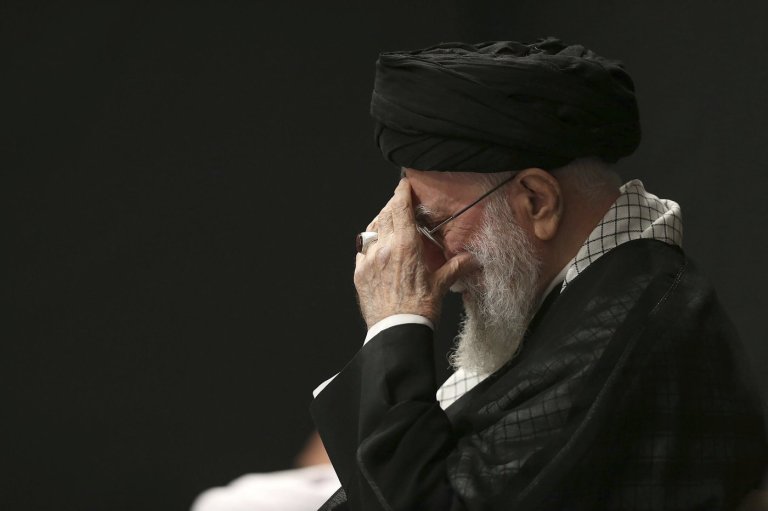U.S. election: Trump, Clinton dominant in Super Tuesday presidential bonanza
WASHINGTON – Donald Trump and Hillary Clinton dominated the Super Tuesday primaries, cementing their advantage as the presidential front-runners of their respective parties.
They captured the vast majority of states on the busiest day of the 2016 presidential primary season, with nearly a dozen states casting ballots Tuesday.
By the time it was over they were already acting like general-election candidates: in victory speeches, Trump and Clinton shifted their message — they began attacking each other.
Trump suggested the Democrat deserved to be in jail for her handling of sensitive information on a home email server. He pivoted to the centre by defending some of the health services offered by Planned Parenthood, the abortion provider. He insisted he’ll not only win disaffected Democrats in the fall, but rally his own skeptical party.
“I am a unifier,” Trump said in a rare primary-night news conference.
“We’re taking from the Democrats. We’re taking from the independents. We have a lot more people… I think we’re going to be able to unify the party. I hope to be able to get along with everybody.”
Trump took about seven of the first 10 states to report results. Clinton took about seven of 11.
And that was just the start of their good news.
Trump also appeared to have lucked into an advantageous split amongst his rivals: Sen. Ted Cruz won two states including his home of Texas; establishment favourite Florida Sen. Marco Rubio won Minnesota; Ohio Gov. John Kasich vowed to remain in the race until his home state votes in two weeks.
The smile on Clinton’s face spoke to her successful night. The rival who polls best against her, Rubio, had a disappointing evening while the less-popular Trump dominated and Cruz did well.
Her victory speech turned its focus toward the autumn, too. Instead of criticizing her socialist primary rival Sen. Bernie Sanders, she tore into her Republican adversary.
“What we need in America today is more love and kindness. Instead of building walls, we’re going to break down barriers and build ladders of opportunity,” Clinton told a boisterous crowd in Florida.
“The stakes in this election have never been higher. And the rhetoric we’re hearing on the other side has never been lower. Trying to divide America between us and them is wrong.”
Still, her intra-party rival shows enduring strength, as the race now accelerates toward a mid-March milestone — where big blocks of delegates start being awarded in winner-take-all primaries.
Sanders paused to remind supporters that delegates are still being awarded proportionally — and that he gained plenty Tuesday, despite losing everywhere but Oklahoma and his home state of Vermont.
Sanders vowed to keep campaigning.
In a punchy address to the home crowd, he reminded his longest-standing supporters of how much they’d advanced since he launched his campaign by a Vermont lake.
“We were at three per cent in the polls. We have come a very long way in 10 months,” said Sanders, who dominated his home state but was losing almost everywhere else.
“At the end of tonight, 15 states will have voted. Thirty-five states remain. Let me assure you that we are going to take our fight for economic justice, for social justice, for environmental sanity, for a world of peace, to every one of those states.”
On the Republican side, Trump appeared poised to capture nearly one-third of the delegates he’ll need to win the Republican nomination, leaving his rivals precious little time to elbow him off-course before he reaches the finish line.
His success has caused such consternation among establishment Republicans that the panel on Fox News was speculating Tuesday about whether this could signal the demise of the Republican party.
Republican brass have shown increasing signs of panic.
There’s been talk in recent days of mounting a third-party campaign if Trump is the nominee, or even a convention-floor scrap to stop him on a second ballot. Some elected Republicans say they’d never vote for him, or leave the party. Senate Republicans are reportedly considering running ads against Trump to dissociate themselves from their own candidate.
Trump was asked about this and called it unfair: “We’re a democracy — I think it’s awfully hard to say, ‘That’s not the person we want to lead the party.’”
Pollster John Zogby said analysts have been blindsided by Trump’s durability. He said they’d known the public was angry; frustrated at a modern economy that has hurt lower-skilled workers; disdainful of the political class; and were aware of grievances among working-class whites over the demographic shifts in the country.
But Zogby said they were caught off-guard by how one famous person managed to turn himself into the rallying point for all those economic and cultural frustrations.
“I guess what we didn’t know was that would all be married with the celebrity culture that we live within. (With) someone who has the same appeal as the World Wrestling Federation. As the Kardashians,” he said.
“He’s shown not only sustainability — but growth.”
Zogby said Trump remains a long-shot in a general election, given the rhetoric that has antagonized significant groups in the country — but he’s no longer possible to discount: “It is within the realm of possibility, I believe not likely but within the realm of possibility, that he could be elected president of the United States.”
Join the Conversation!
Want to share your thoughts, add context, or connect with others in your community? Create a free account to comment on stories, ask questions, and join meaningful discussions on our new site.













Leave a Reply
You must be logged in to post a comment.